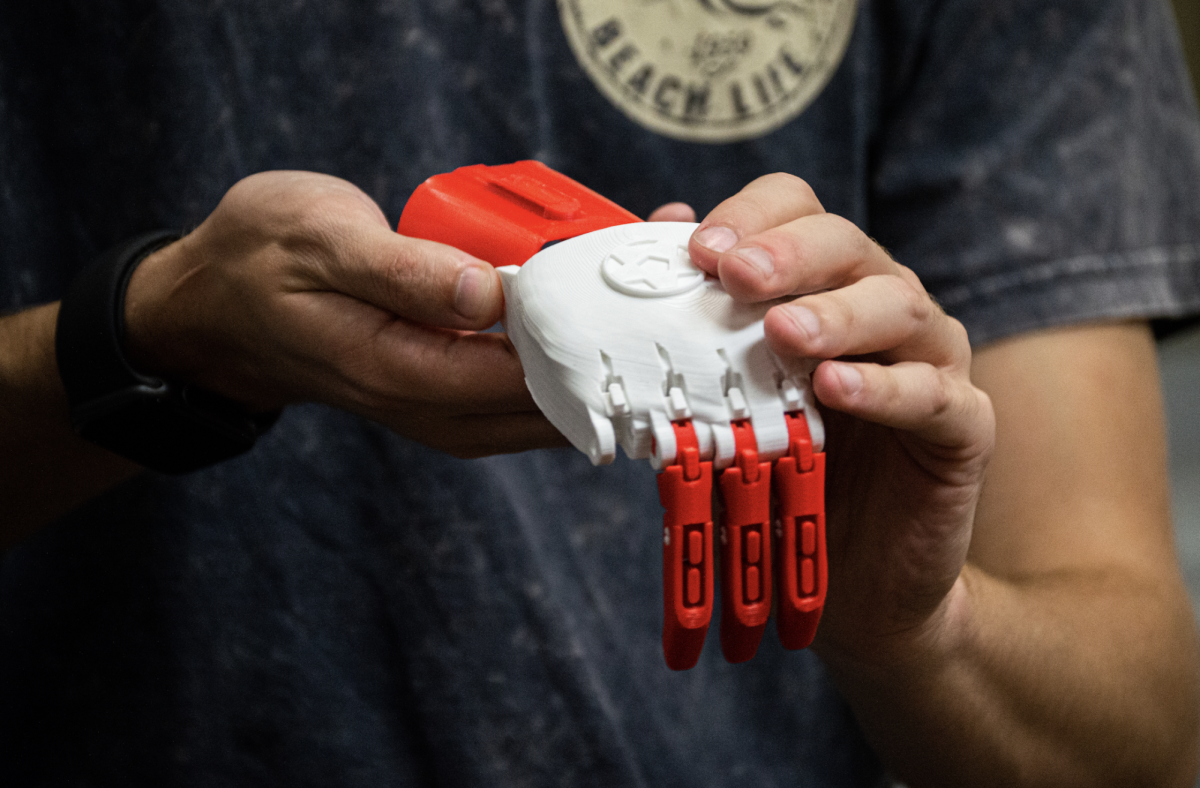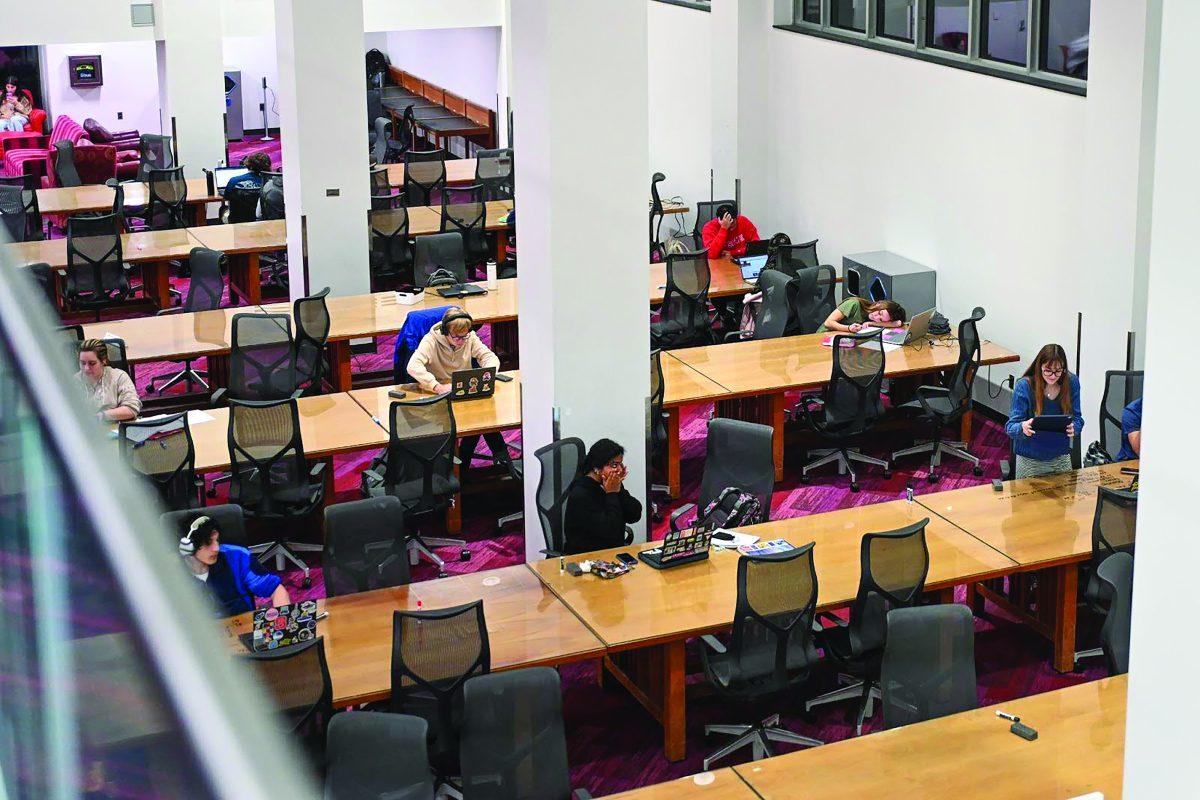For the past two years, the colleges of engineering and education have teamed with Shaw University’s Department of Natural Sciences and Mathematics as well as the Wake County Public School System in efforts to increase the number and diversity of students who enroll and succeed in higher level math courses.
The program, Recognizing Accelerated Math Potential in Underrepresented People (RAMP-UP), is a five-year, $2.5 million grant project funded by the National Science Foundation’s GK-12 Program and the GE Foundation.
It includes 35 undergraduates and six Shaw University students who are supervised by five graduate students from N.C. State. The students are placed in eight Wake County schools — five elementary schools, two middle schools and one high school — to help students improve in math and science.
“We’re trying to help kids be positioned to have choices when they decide what they want to do after high school,” Liz Parry, RAMP-UP project director, said. “Math’s a pretty strong indicator if kids will do well or not do well in college.”
Parry said math is a very consistent requirement for students to attend a four-year university.
Schools in North Carolina require students to take a test in third grade that determines whether they will be on the path to take algebra by eighth or ninth grade and calculus by 12th grade, also known as the advanced math path. Parry said the students on that path are predominantly white and the purpose of the program is to increase the diversity of students on that path by working with teachers to show that while students may not test well, they can do the work.
“We want to increase the diversity because if you’re not identified as gifted and you’re not on this advanced math path, some things are closed off to you when you look at what you want to do after high school,” Parry said.
RAMP-UP’s focus is to help the students from the universities teach Wake County students. At one of the schools, the program initiated a math club for students who aren’t on the advanced math path become stronger at math and ultimately leave with a recommendation for the path in high school.
“A lot of the elementary school stuff, especially for African-American students, is role modeling,” Parry said. “Our program draws a lot of women and a lot of African-American students.” Last year, 65 percent of the fellows were women and 35 percent of the fellows were black.
Denice Young, a graduate student in engineering and a student teacher at Southeast Raleigh Magnet High School for RAMP-UP, said she tries to encourage the students by letting them know she is still motivated on a daily basis to go to class and do well.
“Trying to influence [the students] to go into engineering or finance or math in college is heavily weighed by how well you’re doing,” Young said. “You’re not only trying to encourage them to do so, but to use your own experiences.”
Young said she had been doing K-12 outreach for a while before getting involved with RAMP-UP.
“When I saw [NCSU] was one of the few schools that was actually sponsoring a grant to do so I was definitely interested,” she said.
Parry said the program is more than good press for the University, but that it’s a great partnership and community service that is meaningful to everyone involved.
“I got a note the other day from a student that brought me to tears,” she said. “She said it was the best experience of her college career.”
Travis Williams, a graduate student in electrical engineering and student teacher for RAMP-UP, said working with the program has made a huge difference in his life.
“I tutor fourth-grade girls and three fifth-grade boys, and I see the improvement and the changes that they’re making and it’s even more beneficial to do it at an elementary level because you can have more of an impact on them, and I see how their behavior and their attitude has changed,” Williams said.
“They want me to tell their parents that they did well in tutoring today, so that makes me feel good that they’re getting excited about their work. They want to understand it so they can do well,” he said.
Young said she was a student teacher for RAMP-UP last year, and 11 of the students she helped teach pursued engineering in college this year.
“To know that the program and I had an impact on what they were going to major in and their views on traditional engineering versus what it really is was great for me,” she said, “There really aren’t many minorities in engineering and to know that we actually increased those numbers was great.”
For Parry, who previously worked in industry, the program hits a personal note.
“When I was a child, I learned math very slowly and I thought I was stupid, and it took a science teacher in high school to convince me that I just learned math very visually,” she said. “I had to touch it and do it instead of just hearing it. It’s something very close to my heart because I know a lot of kids are that way.”
Parry hopes that at the end of the five years she will be able to say that the program had an impact.
“I feel like, at the end of five years I’m going to be able to say that we changed a lot of lives,” she said, adding that teachers and student teachers will be effected just as the students are. “They get involved because they know it makes a difference.”
Parry said she got her first look at the evaluation data from last year and the results led her to believe the program has been successful thus far.
The program compares its students to students at other schools with similar demographics. There was a reported 13 percent increase in the number of students who passed the first algebra end of grade exam after RAMP-UP worked with them, something Parry said the student teachers had a lot to do with.
She added that the impact of role models on the students is seen, saying some of the kids that work closely with the scientists and engineers from NCSU and Shaw University tell their parents it’s what they want to do.
Williams said the program also helps motivate parents to do more and help their children out.




